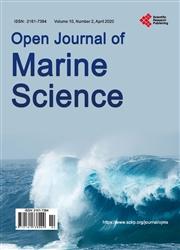Assessing Marine Protected Areas Effectiveness: A Case Study with the Tobago Cays Marine Park
引用次数: 5
Abstract
Given the socio-economic consequences associated with declaring areas of ocean protected in order to achieve conservation objectives, this paper contributes to the growing global need to assess Marine Protected Areas (MPAs) as an effective management tool. It adds to the current body of knowledge on MPA effectiveness by conducting an evaluation of the Tobago Cays Marine Park (TCMP), located in St. Vincent and the Grenadines (SVG) in the eastern Caribbean, using a modified MPA effectiveness framework. Due to the limited information existing about the current performance of this MPA, this assessment also provides needed insight on the effect that the TCMP is having on the marine ecosystem, as well as its overall management performance. By comparing the performance of the MPA over a 10-year span (2007 and 2016), the results indicate that overall, the TCMP could be described as having limited success when key management categories of context, planning, input, process, output and outcomes are evaluated. In particular, efforts dedicated to planning, process and outcomes are assessed as deficient. Furthermore, the analysis revealed that efforts to realize the stated goals relating to conservation, public awareness and public education were being neglected. However, considerable effort was being expended by TCMP staff on achieving the remaining goal focusing on deriving economic benefits from touristic activities in the Park. Preliminary field research examining the effects of the TCMP on the abundance and density of an economically important species, Lobatus gigas, (commonly referred to as the queen conch) showed the TCMP as having no effect towards conch protection. The results and recommendations of this study, combined with continued monitoring of a recommended targeted suite of indicators, could contribute to better-informed adaptive MPA management, leading to progress towards the achievement of the stated goals for the TCMP.评估海洋保护区的有效性:以多巴哥海岸公园为例
鉴于为实现保护目标而宣布海洋保护区所带来的社会经济后果,本文有助于全球日益需要评估海洋保护区,将其作为一种有效的管理工具。它利用修改后的海洋保护区有效性框架,对位于东加勒比圣文森特和格林纳丁斯的多巴哥礁海洋公园进行了评估,从而增加了目前关于海洋保护区的有效性的知识。由于现有关于该海洋保护区当前绩效的信息有限,该评估还提供了关于TCMP对海洋生态系统的影响及其总体管理绩效的必要见解。通过比较MPA在10年期间(2007年和2016年)的表现,结果表明,总体而言,当评估上下文、规划、输入、过程、输出和结果等关键管理类别时,TCMP可以被描述为成功有限。特别是,专门用于规划、过程和结果的努力被评估为不足。此外,分析显示,实现与保护、公众意识和公共教育有关的既定目标的努力被忽视了。然而,TCMP工作人员为实现剩余目标付出了相当大的努力,重点是从公园的旅游活动中获得经济效益。初步的实地研究考察了TCMP对经济上重要物种巨型龙虾(通常被称为女王海螺)的丰度和密度的影响,结果表明TCMP对海螺保护没有影响。这项研究的结果和建议,再加上对建议的一套有针对性的指标的持续监测,有助于更好地了解MPA的适应性管理,从而在实现TCMP的既定目标方面取得进展。
本文章由计算机程序翻译,如有差异,请以英文原文为准。
求助全文
约1分钟内获得全文
求助全文

 求助内容:
求助内容: 应助结果提醒方式:
应助结果提醒方式:


